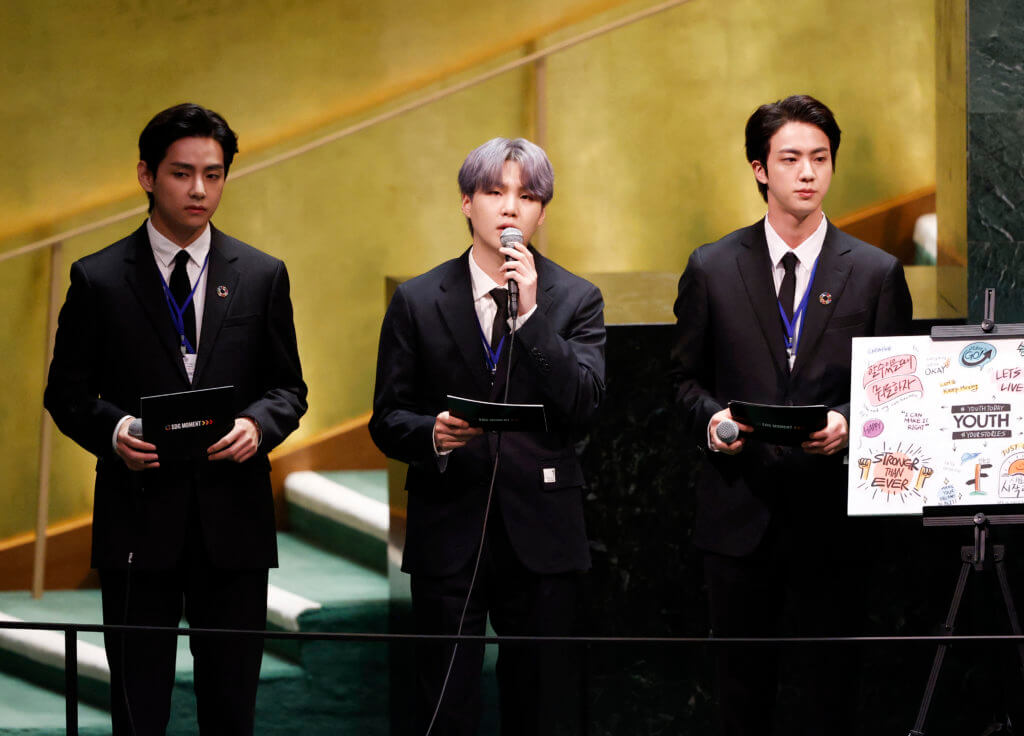
It’s official: The Korean language is the fastest-growing language among Indians. Thanks to the influence of K-pop and Netflix’s cult hit “Squid Game,” Indian youths are now rushing to learn Korean, according to a survey by popular language-learning app Duolingo.
The survey was conducted among 1,013 respondents aged 18 to 50 years from major cities such as Mumbai, Delhi, Lucknow, Bangalore, Chennai and Kolkata, according to The Print. In a report by Duolingo, the American language-learning app revealed that the Korean language now ranks as number five among Indians’ preferences, being one of the most frequent languages accessed on the app.
Step by step: How I am learning Korean
My vantage point, like many Indians, is that I have been exposed to more than one language since childhood. I use structures & systems from all of them to learn Korean.
— Sannuta Raghu (@sannuta) July 29, 2021
Riding the Hallyu wave: Why Indian Gen-Zers and millennials are drawn to the Korean language
Adding to why Korean is experiencing a meteoric rise in India, Duolingo attributes Gen-Zers and millennials as the key drivers behind the number boost. Youths between the ages 17 to 25 years are spurred by the fame of “Squid Game” and popular K-idols such as BTS and BlackPink to dip their toes into the waters of the Korean language.
According to the survey, 56% of Indian learners conveyed that they were motivated by the influence of pop culture to learn a new language. The four other languages that also topped the 2021 list for Indians are English, Hindi, French and Spanish, The Print reports.
“While the range of reasons to study a new language is diverse for Indian learners, professional and personal growth remain top motivators,” says Duolingo. It also adds factors such as interests in a new culture, maintaining a sense of connection with community, and cultivating a new hobby as incentives to learn a new tongue.
Many Indians believe that career advancement and personal growth are main reasons why anyone should improve their linguistic arsenal, with 40% of the survey respondents disclosing that they were “currently” learning a new language.
English retains top spot, but Asian languages are gaining ground

BTS’s power as one of South Korea’s biggest cultural exports has boosted the popularity of the Korean language worldwide. Source: John Angelillo-Pool / AFP
Globally, English still retains its top spot as the most sought-after language among app users. Yet, East Asian languages are showing a steady rise in their number of students.
Outside of India, the Korean language is also the fastest-growing language in Brazil, France, Germany and India, making Korean the seventh most popular language to study worldwide.
Meanwhile, Japanese has now eclipsed Italian to claim the number five spot as the favourite among global language-learners, and is now growing rapidly in the US and the UK. The Asian monopoly doesn’t stop there — Mandarin Chinese, which previously sat at number 10, has dethroned Portuguese and Russian to place eighth worldwide, and is experiencing a boom in Mexico and Brazil, Duolingo reports.
The interest in East Asian languages is hardly surprising considering the cultural impact of its entertainment industries. BTS’s soft power alone in driving album sales and appearing at the United Nations raked in US4.9 billion for the country’s economy in 2021, according to the Asia Scotland Institute.
We’re still not over how amazing @BTS_twt‘s @UN speech was 💜💜💜 #BTSARMY https://t.co/hDkuePdTNK
— Study International (@Study_INTNL) September 22, 2021
Even language-learning alone isn’t enough to quell the Hallyu fever. The Korea Foundation stated that by September 2020, there were 1,835 Korean Wave-related clubs in 98 countries, with total members numbering at 100 million.
BTS-specific Korean language lessons have also mushroomed in colleges and universities across the US, France, Egypt, Vietnam, and other countries to help students ease into Korean through all things K-pop, according to the Korea Herald. Vietnam takes it a step further, and is on the verge of offering Korean lessons at elementary schools as a “first foreign language”.
Interestingly, respondents of the survey reported being more comfortable learning a new language from mobile apps and video tutorials ahead of physical lessons, which marked another shift in learning trends. Duolingo revealed that users have spent over 700 million hours with nearly 10 billion lessons completed on the app, and that 25 million users worldwide were learning more than one language.










